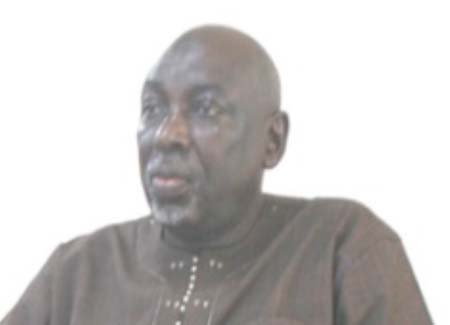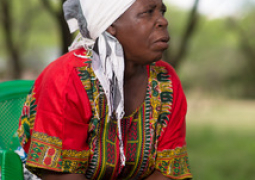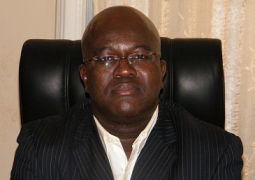
According to World Travel & Tourism in 2018, contribution of travel and tourism to GDP as a percentage for Gambia was 20.4 %. Though Gambia contribution of travel and tourism to GDP fluctuated substantially in recent years, it tended to increase through 1999 - 2018 period ending at 20.4 % in 2018.
An analysis of the sectors annual contribution to revenue and job creations as provided below is significant.
Contribution of the Sector to Revenue
An assessment of the sector’s annual contribution to revenue has been estimated as follows:
Corporate Tax D 150,000,000
PAYE D 36,000,000
VAT D 845,000,000
Municipal Rates D 10,000,000
GTB License D 9,029,780
NAWEC D 350,000,000
Total D1,400,029,780
The total number of employees in the industry is about 139,000 both direct and indirect. (WTC).This figure includes employees of SMEs in the sector and the informal operators. According to the above table the total contribution to government revenue annually is estimated at D1, 400,029,780. The above figures are those contributed by only members of the Hotel and Tourism associations. There are other operators who are not members of the two organisations mentioned above that have not been accounted for. In addition, information on Social Security contributions, tax on dividends, etc are not included in the matrix above even though cumulatively they constitute a significant amount. Notwithstanding, the overall contribution of the sector is quite significant.
NEGATIVE IMPACT
Hotels, tour operators, restaurants, airlines, suppliers and employees are just a few of the hardest hit that suffer the most immediate repercussions, as the outbreak is occurring during the winter months, the busiest travel season.
The estimated arrival figure for this season was estimated to be 289.000 and the drop in the number of arrivals due to outbreak is estimated at 101,930. Estimated revenue loss due to ground handlers, landing fees, lighting, temporal air services due to Civil Aviation and other charges from projected arrival figures amounts to USD 8.3M. All these amounts are lost revenue that was due to GIA, GCAA, NCAC, and GT Board.
In addition, the average out of pocket expenditure is estimated at USD 924 per tourist. Given that the shortfall in the arrival figures is about 101,930 the estimated loss is USD 94, 183,320
The estimated total loss is about US 184m. This does not include VAT, fuelling and not to mention the SMEs who are key players in the sector.
AVERAGE OF 24 HOTELS:
Industry average full occupancy - 95%
Variance - 46%
Industry Present average occupancy - 49%
In monetary terms the variance of 46% at an average room rate of USD45, the industry loss is estimated at USD90m given the fact that the anticipated arrivals is pegged at a conservative figure of 200,000.
The nature of our operations also possesses a great risk, as all contracts with Tour Operators are designed in such a way that hotels pre-finance the service delivery for tourists upon arrival and invoices are sent for payment once the guests have checked-out.. At present some of hotels have unsettled invoices dating back to December 2019. About D350 million is owing to the hotels by International Tour Operators.
FORWARD
- SHORT-TERM & PRIORITY MEASURES
Concerned with the inevitable economic impact, the Gambia Hotel Association and the Tourism Travel Association of the Gambia representing the Tourism, Hospitality and Allied sectors are therefore calling on government to include tourism as priority in the crisis response recovery plans and actions to be implemented and introduce measures that would provide effective support to the industry.
While we applaud the Gambia Government for being quick to respond with promises of help, the majority of businesses still have no idea how to access these potentially life-saving facilities.
Given our high level of exposure, we propose a five-point plan for government to take to combat the devastating effect of Covid-19:
- Immediate intervention from Government
As a matter of urgency, we demand from Government to factor the Tourism, hospitality and Allied Sectors in the emergency fund received from donors with immediate recovery assistance.
- Financing
- Government to implore on Financial Institutions to extend vital, unlimited interest-free loans to the Travel and Tourism Sector as a stimulus to prevent them from collapse. Financial institutions to also restructure all existing loans and overdrafts extend moratorium of 12 months and suspend interest on all facilities to overcome liquidity challenges.
- Government to provide financing (in form of low interest loans etc) to businesses to enable operations after COVID 19.
- Taxes
- Waive all taxes and fiscal charges for 12 months that affects cash flow which can be critical to business survival, such as corporate and income taxes for 2020 and 2021.
- Provide duty waivers for imports for the 2020/2021 season
- Employee Support
- Given the negative consequences and in particular social impact of COVID 19 would have in the form of laying-off employees of hotels, Government to take care of salaries/wages for the period of 8 months (March-October 2020). This is estimated to be at USD 51.5 Million.
- To request Social Security to pay workers part of their contributions for the sake of assisting the effected persons.
- Licences and Municipality Rates
- GT Board to give concession to tourism establishments through introduction of waiver of operational licenses.
- Government to waive municipal taxes and rates for 2019 and 2020 calendar year.
- Taxes
- Waive all taxes and fiscal charges for 12 months that affects cash flow which can be critical to business survival, such as corporate and income taxes for 2020 and 2021.
- Provide duty waivers for imports for the 2020/2021 season
- Employee Support
- Given the negative consequences and in particular social impact of COVID 19 would have in the form of laying-off employees of hotels, Government to take care of salaries/wages for the period of 8 months (March-October 2020). This is estimated to be at USD 51.5 Million.
- To request Social Security to pay workers part of their contributions for the sake of assisting the effected persons.
- Licences and Municipality Rates
- GT Board to give concession to tourism establishments through introduction of waiver of operational licenses.
- Government to waive municipal taxes and rates for 2019 and 2020 calendar year.
LONG-TERM INTERVENTIONS
The situation on the ground warrants us to be more proactive in consolidating existing geographic existing markets. The need to focus on the much talked about all year-round tourism policy is more necessary than ever before
Seasonality
Although the general consensus exists that the Gambia is potentially an attractive and safe short-and long- haul holiday destination for many new potential markets such as the ECOWAS region (e.g. Nigeria), Southern Europe (e.g. Spain), Eastern Europe and those new emerging source markets, the reality is that the destination is in urgent need of rejuvenation and repackaging Products and market segments are in need of diversification.
Over the years the emphasis on the regional market was focus mainly on the attendance of the Akwaaba Fair in Lagos, Nigeria which is the only tourism professional fair in the Sub-region... The engagement of P.R Agents in strategic source markets to promote the destination was realised through the support of the Tourism Marketing Committee funded World Bank Project which has now been faced out. The proposal to attend other festivals in Nigeria as part of the overall promotional strategy could not be fulfilled due to inadequate funding.
The competitive advantages our destination has to capture the regional market includes
- Peaceful coupled with value for money hotels and good services.
- New and modern conference centre
- Attractive venues for weddings and other lifestyle and sporting events such as golf
- With short flights (over an hour), from potential markets such as Senegal, Liberia and Sierra Leone, it makes it a perfect destination for weekend breaks
- Support of Public Private Partnership in The Establishment of a Gambian Registered Airline:
- The initiative by The Ministry of Tourism and Culture on the above is being studied by a Task Force and the report is due for submission any time now. It is recommended that this initiative be supported fully to ensure the realization of having a home base Gambian carrier to break the barrier on our dependency on foreign carriers which in most cases don’t last long and are not sustainable.
- The tour operator emphasis on winter sun holidays has led to an imposed ‘season’ from November to March. This has been exacerbated by a dependence on charter flights to bring visitors. The economic consideration of running charter flights concludes that it is more profitable for international tour operators to fly their aircraft to the Mediterranean during the European summer than the 12-hour round-trip to The Gambia.
- Given the historical fact that our tourism industry was founded by Scandinavians and this market has dropped significantly over the years. We should by all means possible intensify our promotional efforts in that market as a matter of priority .Our strength in that market is the confirmation that most of our repeating tourist come from that market backed by the fact that there is a large Gambian population with strong national organizations able and willing to support us in our promotional campaigns.
The consolidation of the markets in Scandinavia, Netherlands, Spain and other markets need to be enforced not only by attendance of fairs but more of interactive programs with schools, universities and religious groups, festivals among others.
- Sect oral investment needed is the laying of the foundation in provision of the required necessary infrastructure such as accessible roads, 24 hours energy services (even if it means having a dedicated generating power station for the TDA, bearing in mind that the new conference centre is located in the TDA).
- Calling for a shift of direction in spending more on product development than marketing would serve us better in conformity with good responsible tourism practices..
All these measures together could save a vital sector that brings in essential foreign exchange, inward investment, create jobs opportunities and above all stimulates every sector of our economy.
References:
- Tourism Development Master Plan Study – Air Access Report. Summary 2006
- The Benefits and Challenges of Tourism to the Gambia Petition to Present Barrow. July 2017 by Sheikh A. Tejan Nyang.
- World Travel and Tourism Council Statistics. 2017-2018
Summarised by Sheikh Tejan Nyang,
Tourism Consultant
Read Other Articles In Opinion
What's False and What's True on China-related Human Rights Matters: Part I
Jul 7, 2020, 1:07 PM



